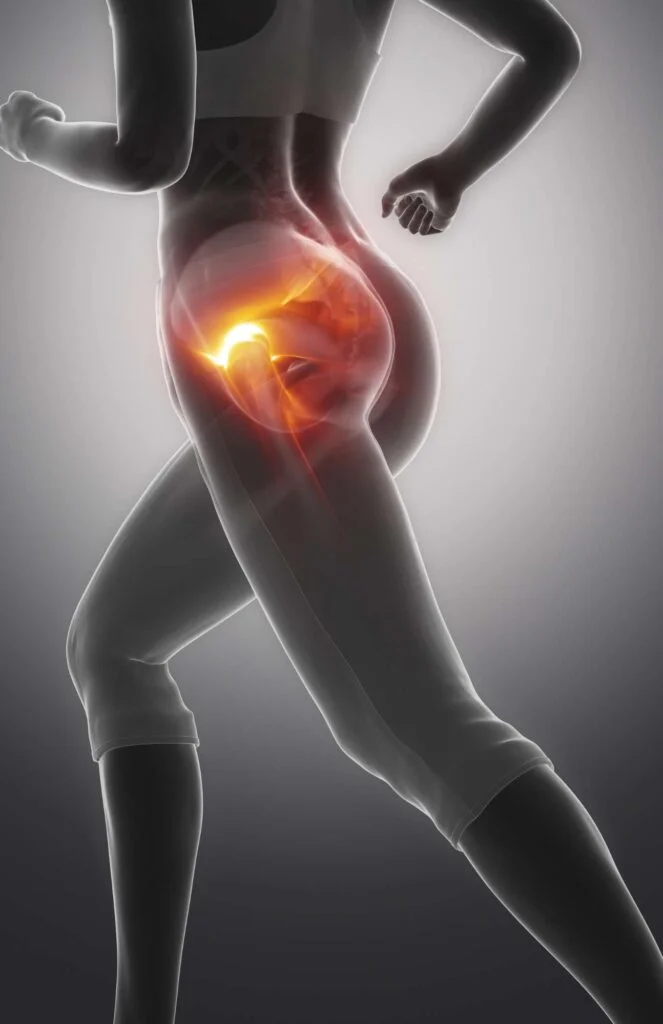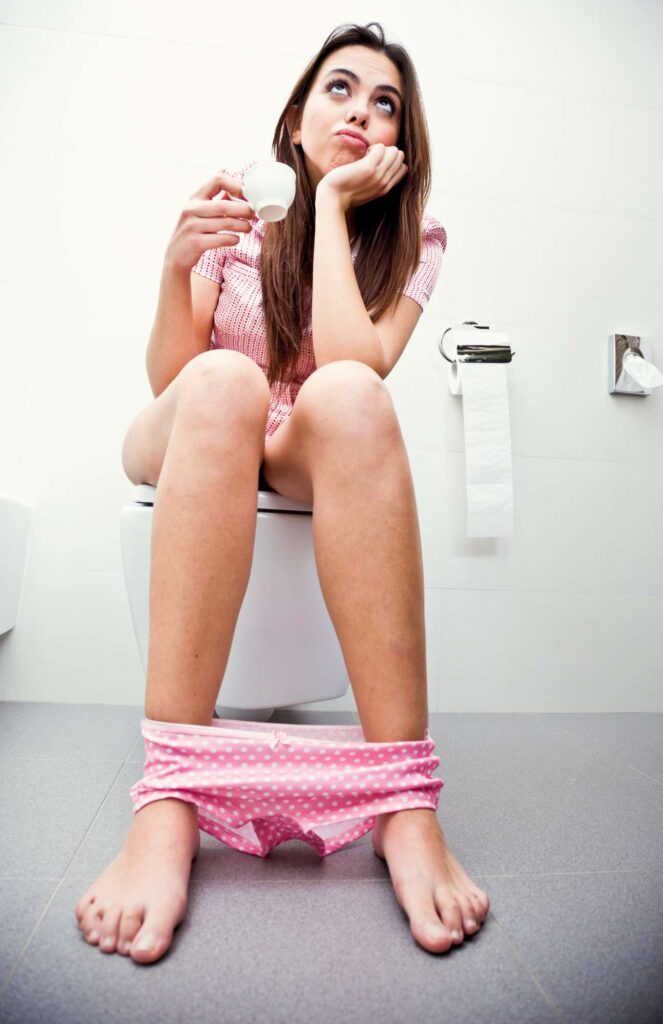Surprising Ways Constipation and Hip Flexor Pain are Related
Last Updated on January 19, 2024 by Dr. Tiffany Egan
Constipation and hip flexor pain are two seemingly unrelated conditions that can often go hand in hand. Understanding the connection between these two issues is crucial for finding long-lasting relief.
Constipation is a common digestive problem characterized by infrequent bowel movements and difficulty passing stool. On the other hand, hip flexor pain refers to discomfort or tightness in the muscles that help flex the hip joint.
While they may appear unrelated, the digestive and musculoskeletal systems are intricately connected, and imbalances in one can affect the other.
Table of Contents
The connection between constipation and hip flexor pain
The link between constipation and hip flexor pain lies in the proximity of the organs and muscles involved. The colon, which is responsible for eliminating waste from the body, is located in the lower abdomen, close to the hip flexor muscles.
When constipation occurs, the buildup of stool in the colon can put pressure on the surrounding muscles, including the hip flexors. This pressure can lead to discomfort, tightness, and even pain in the hip flexor region.
Additionally, the hip flexor muscles and the muscles of the pelvic floor work together to maintain proper bowel function.
When the hip flexors and pelvic muscles become tight or weakened, it can disrupt the coordination between these muscles, leading to digestive issues such as abdominal pain and constipation.
Therefore, addressing both constipation and hip flexor pain simultaneously is crucial for achieving optimal digestive and musculoskeletal health.

Causes of constipation and hip flexor pain
Constipation can be caused by a variety of factors, including a lack of fiber in the diet, dehydration, sedentary lifestyle, certain medications, and underlying medical conditions such as irritable bowel syndrome (IBS) or hypothyroidism.
Similarly, hip flexor pain can be triggered by factors such as prolonged sitting, improper posture, muscle imbalances, overuse, or injury.
In some cases, the causes of constipation and hip flexor pain may overlap. For example, a sedentary lifestyle can contribute to both conditions. When we spend long hours sitting, our hip flexor muscles can become tight and weakened, leading to hip pain and discomfort.
At the same time, sitting for extended periods can also slow down the digestive system, contributing to constipation. Identifying the underlying causes of both constipation and hip flexor pain is essential for effective treatment and prevention.
Symptoms of constipation and hip flexor pain
Recognizing the symptoms of constipation and hip flexor pain can help you seek appropriate treatment and find relief.
Common symptoms of constipation include infrequent bowel movements, difficulty passing stool, hard or lumpy stool, bloating, lower back pain, abdominal discomfort, and a sense of incomplete evacuation.
On the other hand, symptoms of hip flexor pain may include pain or discomfort in the front of the hip or groin area, difficulty walking or climbing stairs, low back pain, stiffness, and limited range of motion in the hip joint.
It is important to note that everyone’s experience with constipation and hip flexor pain may vary. Some individuals may only experience mild symptoms, while others may suffer from more severe or chronic discomfort.
If you are unsure whether your symptoms are related to constipation or hip flexor pain, it is best to consult with a healthcare professional for an accurate diagnosis.

Diagnosing constipation and hip flexor pain
Diagnosing constipation and hip flexor pain typically involves a combination of medical history assessment, physical examination, and, if necessary, additional tests.
Your health care provider will inquire about your symptoms, dietary habits, lifestyle, and any underlying health issues. They may also perform a physical examination to assess the range of motion in your hip socket joint and check for signs of muscle tightness or weakness.
In some cases, your healthcare provider may recommend further tests to rule out other potential causes or complications such as femoral hernias and other serious conditions .
These tests may include blood work to check for conditions like hypothyroidism or inflammatory bowel disease, imaging tests such as X-rays or MRI scans to evaluate the hip joint or colon, or a colonoscopy to examine the colon for any abnormalities.
The diagnostic process will depend on your specific symptoms and medical history.
Treatments for constipation and hip flexor pain
Treating constipation and hip flexor pain often involves a multi-faceted approach that addresses both the underlying causes and the symptoms. In the case of constipation, lifestyle modifications are typically the first line of treatment.
Increasing fiber intake through a diet rich in fruits, vegetables, whole grains, and legumes can help soften the stool and promote regular bowel movements. Staying adequately hydrated and engaging in regular physical activity can also support healthy digestion.
In addition to lifestyle changes, over-the-counter laxatives or stool softeners may be recommended for temporary relief of constipation. However, it is important to use these medications under the guidance of a healthcare professional and not rely on them as a long-term solution.
For chronic or severe cases of constipation, prescription medications or specialized treatments may be necessary.
When it comes to hip flexor pain, treatment options may include physical therapy, stretching exercises, and strengthening exercises to improve muscle flexibility and balance.
Heat or ice therapy, massage, and non-steroidal anti-inflammatory drugs (NSAIDs) may also provide temporary relief. In some cases, corticosteroid injections or surgical interventions may be considered for persistent or severe hip flexor pain.
Lifestyle changes to prevent constipation and hip flexor pain
Preventing constipation and hip flexor pain involves adopting healthy lifestyle habits that support proper digestion and musculoskeletal health. Some practical lifestyle changes you can implement include:
- Maintaining a balanced diet: Ensure you consume an adequate amount of fiber from whole foods such as fruits, vegetables, whole grains, and legumes.
- Staying hydrated: Drink enough water throughout the day to keep your digestive system functioning optimally. The best way to keep hydrated is to drink a small glass of water every hour that you’re awake.
- Engaging in regular physical activity: Incorporate regular exercise into your routine to promote healthy digestion and maintain hip flexor flexibility.
- Practicing good posture: Be mindful of your posture, especially when sitting for long periods, to prevent hip flexor tightness and pain.
- Taking regular breaks from sitting: If you have a sedentary job or lifestyle, make it a habit to take breaks and stretch your hip flexor muscles.
By making these simple lifestyle changes, you can significantly reduce the risk of both constipation and hip flexor pain.
Exercises to relieve constipation and hip flexor pain
Incorporating specific exercises into your daily routine can help alleviate both constipation and hip flexor pain. These exercises aim to promote healthy digestion and improve the flexibility and strength of the hip flexor muscles. Here are a few examples:
- Deep breathing exercises: Deep diaphragmatic breathing can stimulate the digestive system and promote bowel movements. Sit or lie down comfortably, place one hand on your chest and the other on your abdomen, and take slow, deep breaths, focusing on expanding your abdomen with each inhale.
- Yoga poses: Certain yoga poses can help stretch and strengthen tight hip flexors while also promoting digestion. Poses like the low lunge, pigeon pose, and bridge pose can be particularly beneficial for tight muscles. Consult with a qualified yoga instructor to ensure proper form and technique.
- Pelvic floor exercises: Strengthening the muscles of the pelvic floor can improve bowel function and alleviate constipation. Kegel exercises, squats, and bridges are effective for targeting the pelvic floor muscles. It is advisable to consult with a pelvic floor physical therapist for guidance if you are experiencing pelvic pain.
Remember to start slowly and listen to your body. If any exercise causes pain or discomfort, discontinue and consult with a healthcare professional.

Home remedies for constipation and hip flexor pain relief
In addition to lifestyle changes and exercises, there are several home remedies that can provide relief from constipation and hip flexor pain. These remedies can be used in conjunction with other treatments or as a temporary measure. Here are a few examples:
- Warm water with lemon: Drinking warm water with lemon in the morning can help stimulate the digestive system and promote bowel movements relieving chronic constipation.
- Epsom salt bath: Soaking in a warm bath with Epsom salts can relax the muscles and provide temporary relief from hip flexor pain. The magnesium in the Epsom salt will also aid in stimulating the digestive tract. Here’s a direct comparison between magnesium flakes vs Epsom Salt.
- Gentle abdominal massage: Massaging the abdomen in a circular motion can help stimulate bowel movements by gently moving internal organs and relieve constipation.
- Take Supplements: Supplements such as glutamine, probiotics, and vitamin D can help boost your gut health, immune system and improve overall health. Here are some of the best glutamine supplements.
- Topical Pain Relievers: For hip flexor pain, muscle soreness, and joint discomfort. Arnica and Biofreeze are two of my favorites. You can see the comparison between Arnica vs Biofreeze, here.
- Heat or cold therapy: Applying a heating pad or an ice pack to the hip flexor area can help reduce inflammation, improve blood flow and alleviate pain.
It is important to note that home remedies may not be suitable for everyone, and their effectiveness can vary. If your symptoms persist or worsen, it is advisable to consult with your primary care physician for further evaluation.
When to see a doctor for constipation and hip flexor pain
While many cases of constipation and hip flexor pain can be effectively managed with lifestyle changes and home remedies, there are situations when it is important to seek medical care. You should consult with a healthcare professional if:
- Your symptoms persist or worsen despite self-care measures.
- You experience severe or chronic pain in the hip flexor region.
- You notice blood in your stool or experience unexplained weight loss.
- You have a history of underlying medical conditions that may contribute to constipation or hip flexor pain.
- You have difficulty passing stool or experience a sudden change in bowel habits.
A healthcare professional can provide a physical exam, proper diagnosis, rule out any underlying conditions, and recommend appropriate treatment options based on your specific needs.
Conclusion
Constipation and hip flexor pain may share a closer connection than we initially realize. By understanding the relationship between these two conditions and implementing the appropriate treatments and lifestyle changes, we can find relief and improve our overall well-being.
Remember to consult with a healthcare professional for an accurate diagnosis and personalized treatment plan. With a comprehensive approach, you can overcome constipation, alleviate hip flexor pain, and regain a healthy gut and hip function.
CTA: If you are experiencing constipation and hip flexor pain, do not hesitate to consult with a healthcare professional for an accurate diagnosis and personalized treatment plan. Take control of your health and find relief from these interconnected issues.






